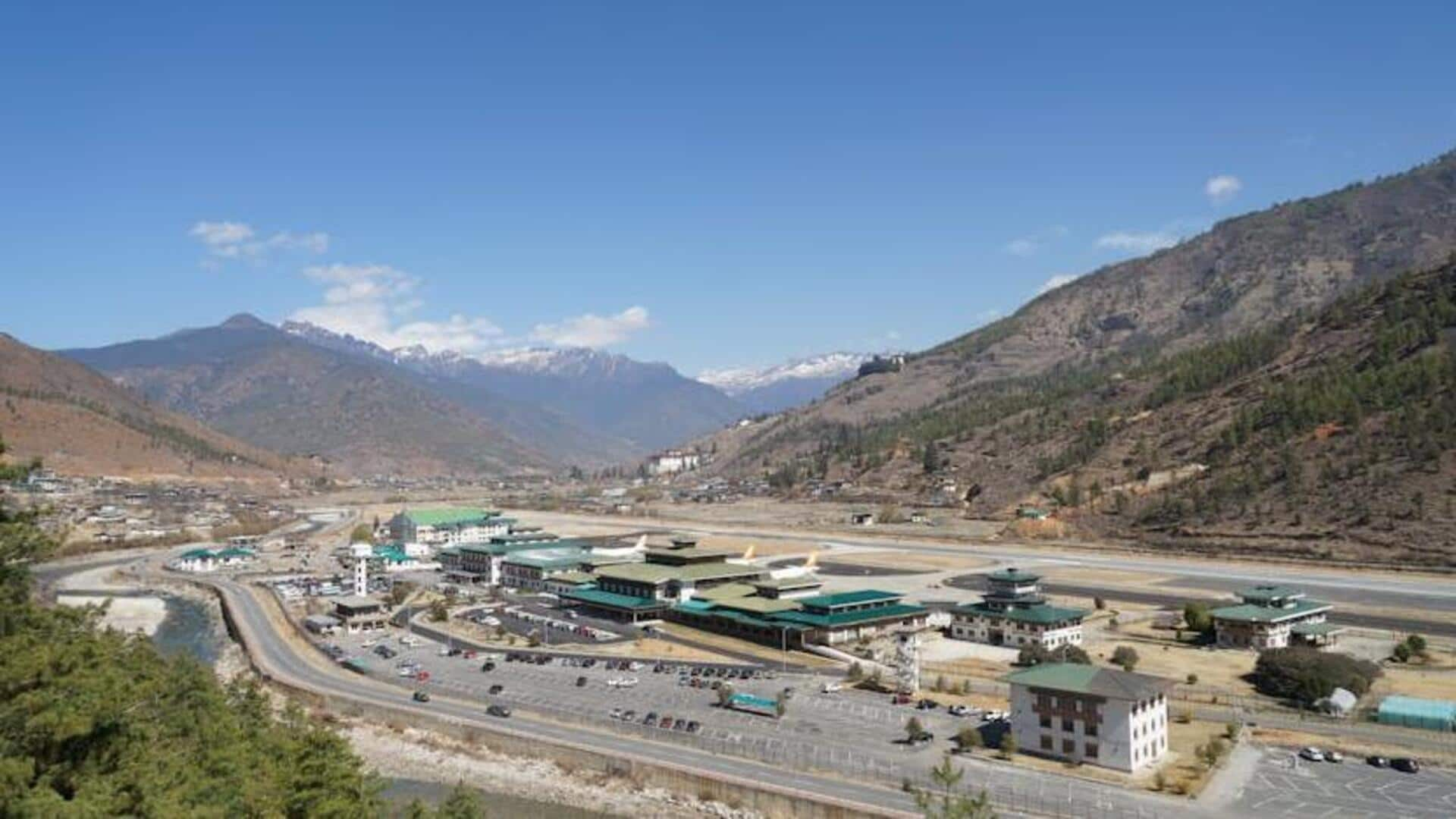
Unveiling Bhutan's hidden valleys
What's the story
Bhutan, a small kingdom nestled in the Himalayas, is known for its deep-rooted traditions and stunning landscapes. Unlike the usual tourist destinations, Bhutan offers a unique journey into its hidden valleys where culture and nature intertwine. This guide aims to help travelers immerse themselves in the authentic Bhutanese way of life, exploring its serene monasteries, vibrant festivals, and untouched natural beauty.
Sacred hike
Trek to Tiger's Nest Monastery
Perched on a cliffside, the iconic Paro Taktsang or Tiger's Nest Monastery is a must-visit. The trek takes about two to three hours through pine forests adorned with prayer flags. It's not just a physical journey but also a spiritual one. Visitors are rewarded with breathtaking views and an insight into Buddhist culture. Remember to carry water and wear comfortable shoes.
Village visit
Experience traditional Bhutanese life
To truly understand Bhutan, visiting a traditional village is essential. The Phobjikha Valley offers an opportunity to see the rural Bhutanese lifestyle up close. You can observe traditional architecture, see how locals live without modern technology, and even participate in daily activities like farming or cooking. It's an eye-opening experience that connects you deeply with the country's culture.
Cultural festivity
Attend a tshechu festival
Tshechus are religious festivals held in various temples, monasteries across Bhutan. These events are characterized by masked dances and storytelling performances that depict ancient Buddhist tales. Attending a Tshechu allows travelers to witness the vibrant cultural heritage of Bhutan firsthand. The most famous Tshechu takes place in Thimphu; plan your visit around this time for an unforgettable experience.
Artistic journey
Explore traditional arts at Thimphu
In Thimphu, the capital of Bhutan, the Institute for Zorig Chusum is where students master traditional arts such as painting, wood carving and weaving, all crucial to Bhutanese heritage. Visitors are welcome to tour the institute to see artisans at work and may purchase authentic souvenirs. This experience not only supports local craftsmanship but also allows taking a piece of Bhutanese culture home.